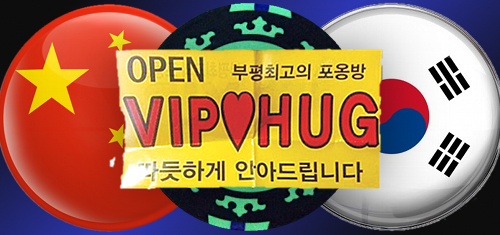 China’s government has accused casinos on South Korea’s Jeju Island of luring Chinese gamblers with a prostitution price list.
China’s government has accused casinos on South Korea’s Jeju Island of luring Chinese gamblers with a prostitution price list.
On Monday, China’s state-run television network China Central Television (CCTV) ran an exposé in which Jeju’s casinos did not come off well. The report showed what it claimed was a contract that promised sexual services in exchange for buying a certain volume of gaming chips at Jeju casinos.
For instance, buying RMB 100k (US $15,700) worth of chips would entitle a gambler to a massage. Spending twice that sum earned a “one-time service” from an aspiring Korean model or actress, while spending RMB 500k got you three days worth of, ahem, servicing.
The report claimed the documents were confiscated from Korean and Chinese recruiters during this summer’s raids on travel offices in Beijing, Shanghai, Hebei and Jiangsu. A total of 13 South Koreans and 34 Chinese were rounded up for allegedly offering illicit perks to Chinese gamblers willing to travel to casinos on Jeju. China’s Ministry of Public Security declares it a crime to organize international travel for more than 10 people for the purpose of gambling.
The Chinese recruiters reportedly received a 1.6% kickback on chip purchases made by gamblers they steered to Jeju casinos, with a $31k bonus if gamblers lost $156k or more. Chinese authorities claimed to have confiscated nearly $4.8m in illegal gambling money during the raids.
CCTV interviewed an official at the Chinese consulate in Jeju who said there’d been a “sharp increase” in the number of Chinese tourists who reported being threatened and/or having their passports confiscated after borrowing money from loan sharks operating out of the casinos.
This isn’t the first time that Chinese state-run media has made such claims. In December 2014, shares in Korean casino operators plummeted after Chinese media reported that 80% of Jeju’s tourists were Chinese, 80% of whom gamble and 80% of those who gamble will lose money.
Chinese gamblers are the primary customers of the eight foreigners-only casinos on Jeju, most of which are small operations. But Genting Singapore is in the process of building Resorts World Jeju, the island’s first large-scale integrated resort, and Lotte Tour Development Co announced earlier this month that it would build its Dream Tower integrated resort project on Jeju.
It’s doubtful that any of these casinos could survive if China was to completely turn off the tourist tap. As always when dealing with Beijing, it’s a mystery whether the CCTV exposé is just another warning shot or presages some tougher crackdown on travel to South Korea, where the tourism business had only just begun to recover from this year’s MERS outbreak.
CLSA Research issued a report last week that said South Korea remained a prime destination for Chinese tourists, due in part to the average cost of a package tour to South Korea being 19% lower than the average of other major Chinese tourist destinations (Japan, Thailand, Taiwan, Singapore, Indonesia and Vietnam). With the MERS debacle behind it, CLSA said South Korea could expect to enjoy 20% year-on-year growth in Chinese inbound traffic. That is, depending on whether Beijing’s other shoe has dropped.
